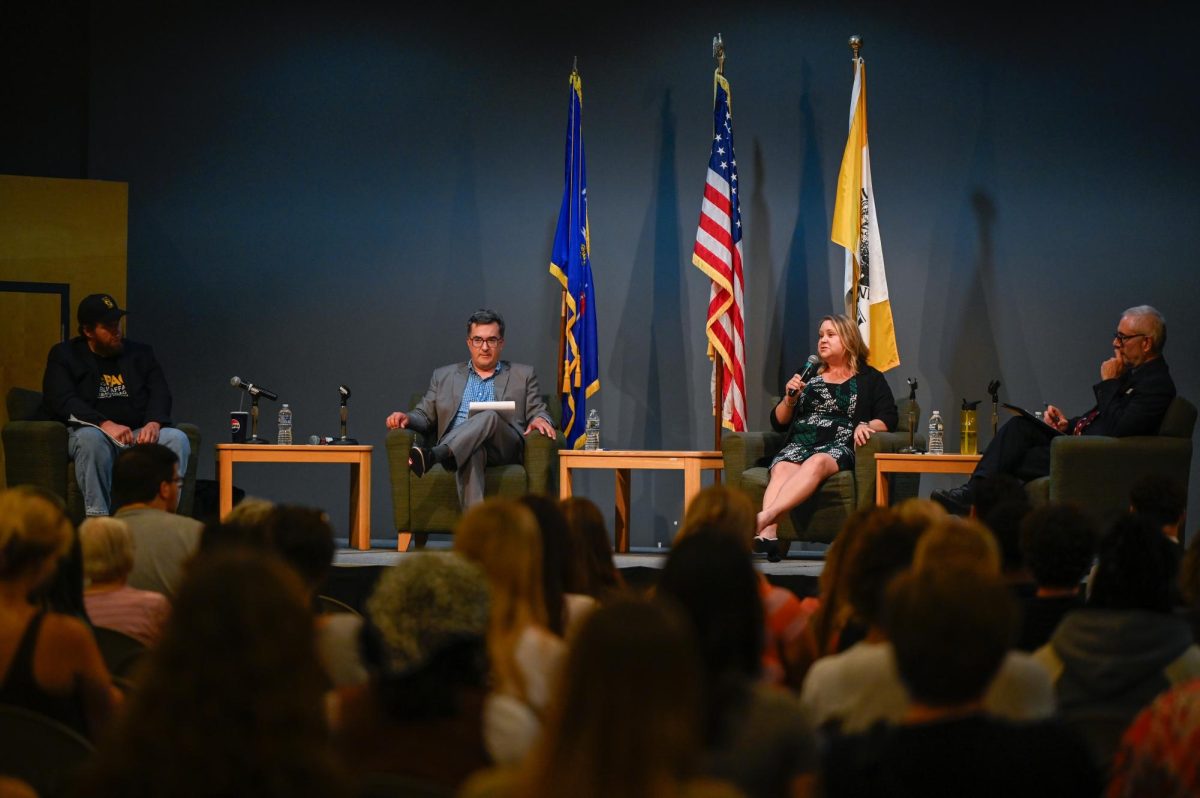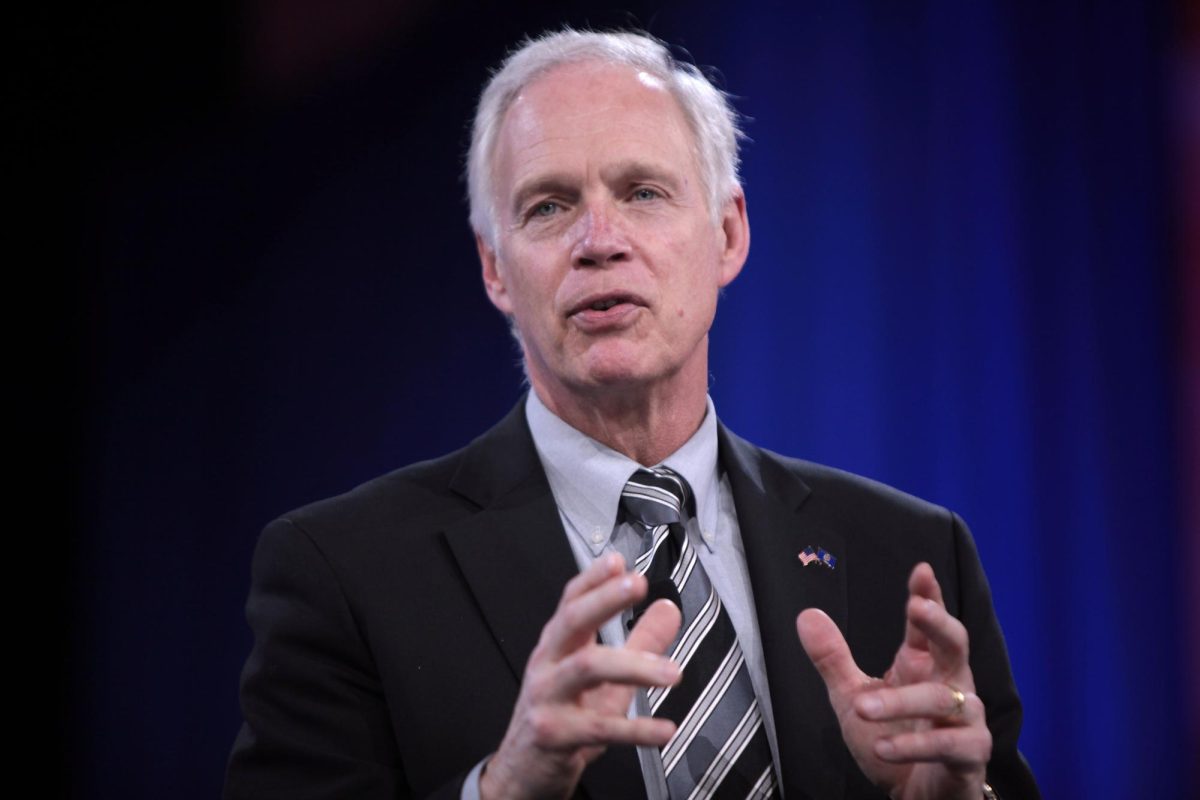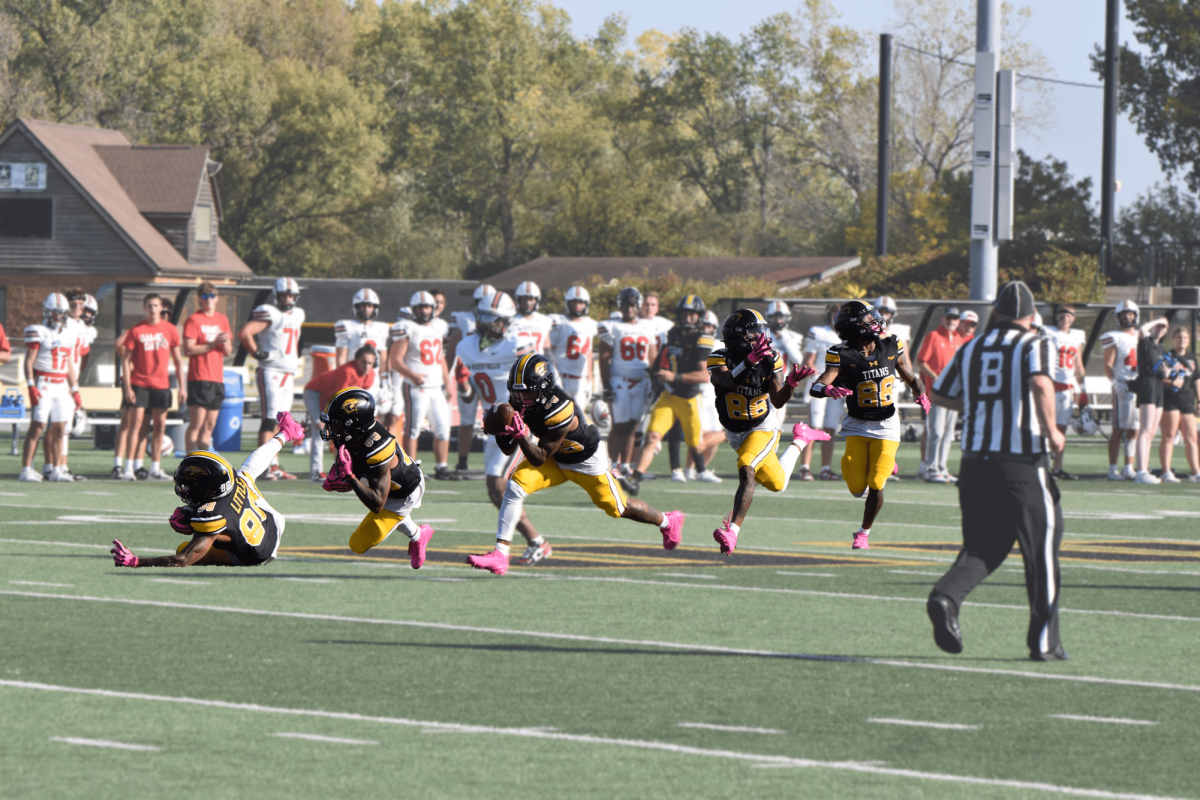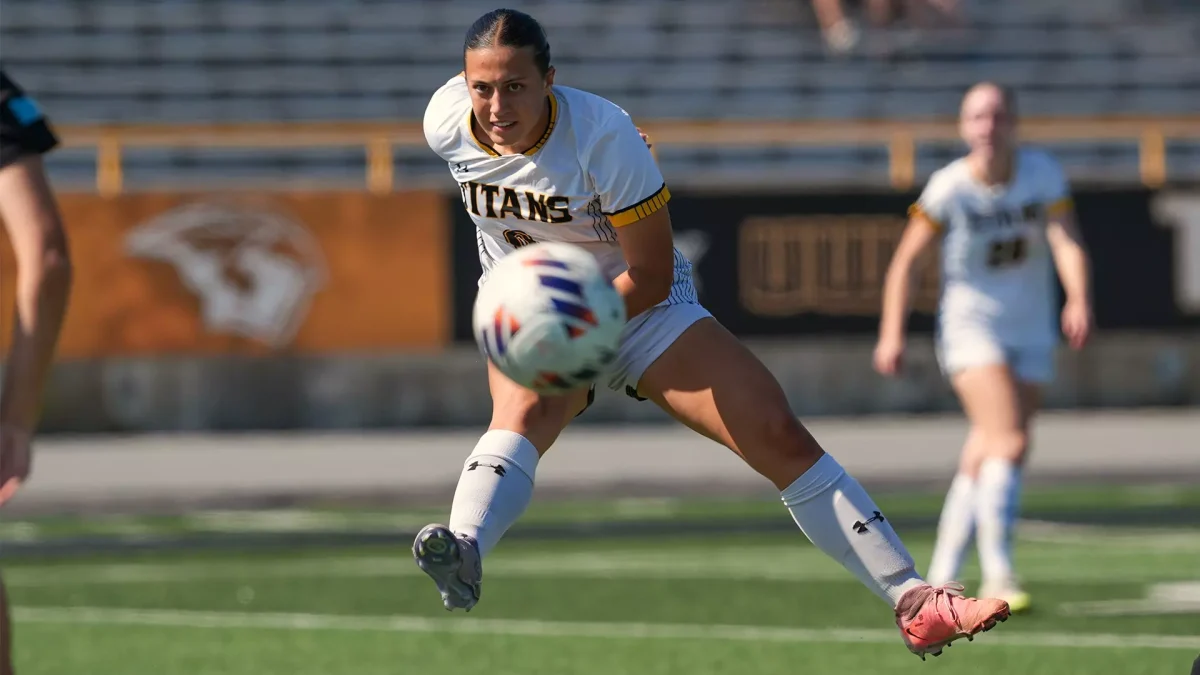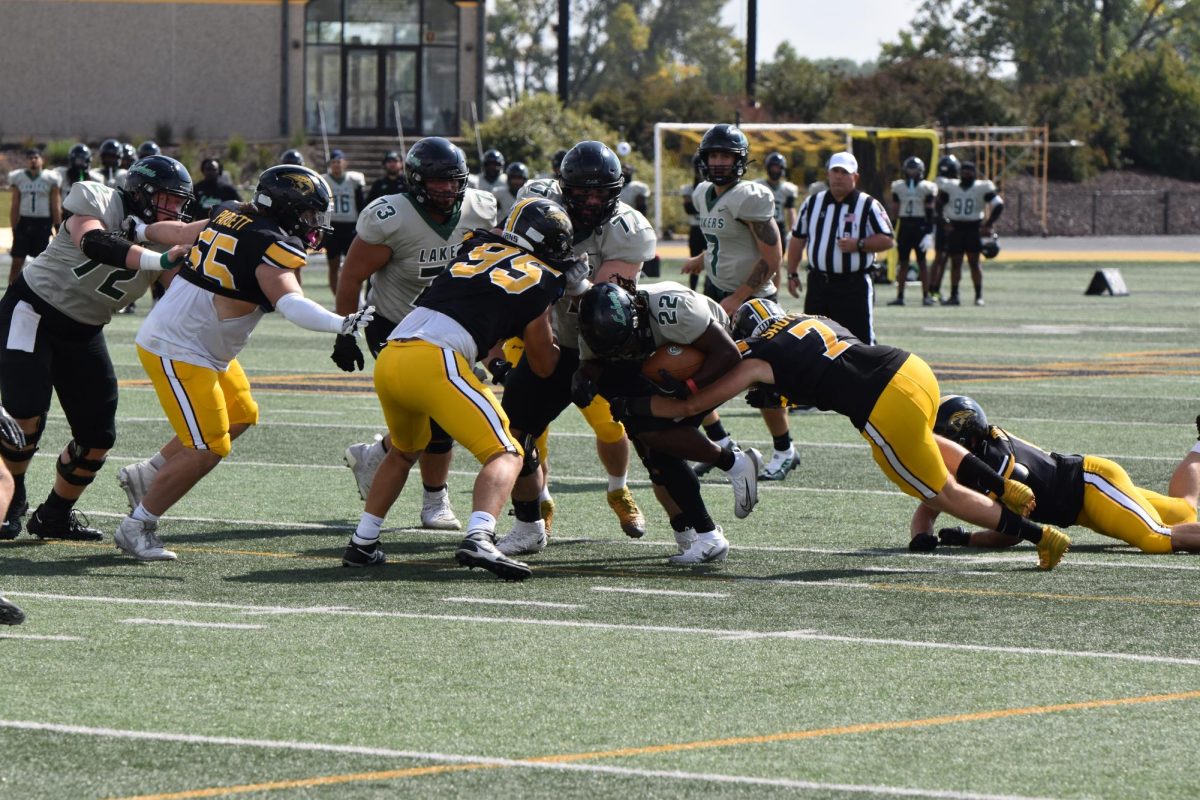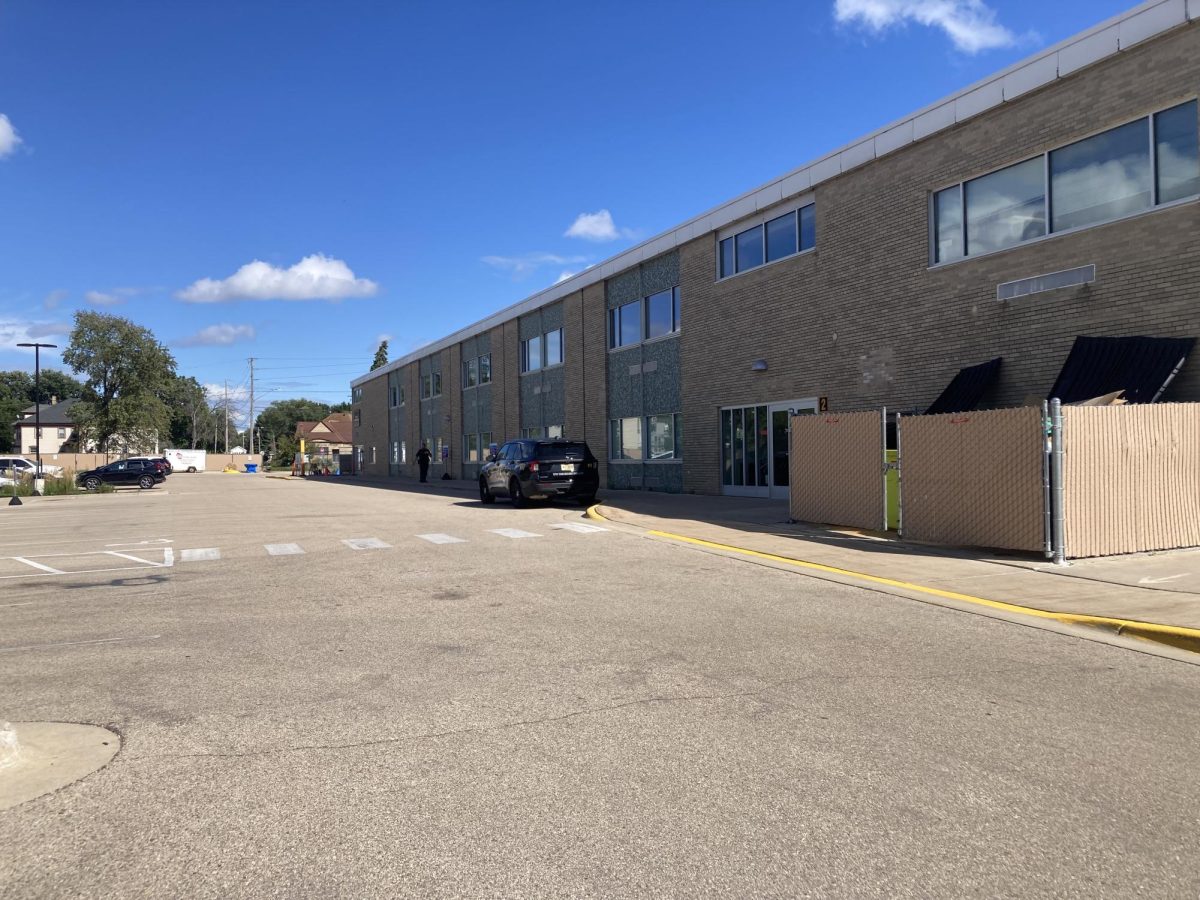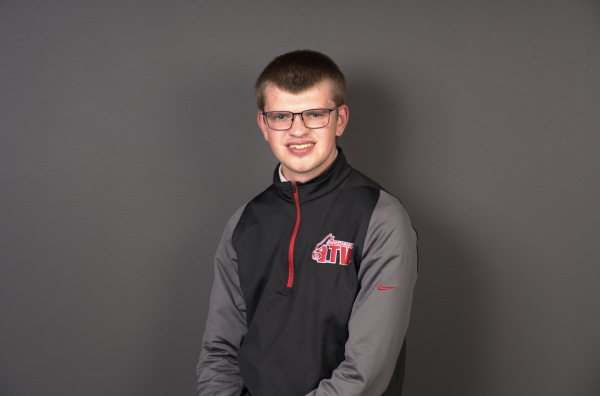“A Constitution Challenged” was the topic of this year’s edition of UW Oshkosh’s annual Constitution Day event, which was held Sept. 18 inside Reeve Memorial Union.
“We’re in an unprecedented era of constitutional change in our lifetimes,” political science professor and moderator of the event David Siemers said, explaining the decision to go with this format.
Since 2004, all universities and colleges that receive any federal funding are required to hold an event to observe Constitution Day. “A Constitution Challenged” featured four professors who discussed how changes have impacted certain clauses and ideas in the Constitution. The panel included communication studies professor Tony Palmeri, political science professor Amber Lusvardi and criminal justice professors Matt Richie and Siemers.
In his remarks focused on the First Amendment, Palmeri emphasized the struggles that the press is currently having.
“The free press is in crisis right now,” Palmeri said. “And I don’t think that crisis started with the Trump administration. But I do think the Trump administration is challenging our free press (in a way) we have not seen in a while.”
Palmeri said to the audience that all people should be concerned about the recent attacks on the free press.
“We should all be in solidarity in trying to protect our free press,” Palmeri said. “I’m a media critic. I am more critical of the press than anyone in the room. But being a media critic doesn’t mean you want to see the media silenced.”
Palmeri said that the free press has been undermined over the past few years through defamation lawsuits, attacks on the independence of the press and the dismantling of public radio and broadcasting. Other cases include attacks on public access to information and the student press.
“More than 8,000 webpages across more than a dozen government agencies have been purged,” Palmeri said. “Anything that says anything about DEI (diversity, equity and inclusion) has been purged. Those of you who may have read the book 1984 by George Orwell, this is kind of like a ministry of truth.”
Palmeri said that people cannot celebrate the press being silenced.
“Be careful of celebrating the silencing of any press,” Palmeri said. “Because the next day, the press that you do like, will be silenced. So we’ve got to be in solidarity over free press.”
Lusvardi, associate professor of political science, talked beyond the First Amendment’s free speech understanding by discussing two clauses of the right to petition and the right to peaceably assemble because they are “lesser discussed.”
“The reason why I bring these in is because the intent of both of these clauses was to give voice to people who didn’t have access to structural power,” she said. “People who wanted to be heard by (the) government, (for them) these were two clauses in the Constitution that allowed them to do so.”
Lusvardi said that if constituents want to be heard specifically by their representatives or senators, they should use modern-day technology.
“You can call them, you can email them, you can join a Tele-Town Hall (or) you could fax them if that’s a thing people still have,” she said. “There are all these avenues by which you can reach out to your senator (and) to your representative.”
Lusvardi said that another effective way to make people’s voices heard is through the right to peaceably assemble, which can look like a protest, march or free association with some type of organized group.
“The thing that’s important for you to know … is that when social movements use these types of tactics, like protests and marches, they work,” she said. “Social movements name issues, frame issues, and they get them on the legislative agenda. It is an effective way to get the attention of your elected officials.”
Richie, a criminal justice professor and self-proclaimed expert on the 14th Amendment, which gives equal protection to all people, spoke on how it ties up the 13th Amendment, which abolishes slavery.
“We finish slavery, perfect, what a win, no more racism,” Richie said. “And then we have the 14th amendment, so everyone has the same rules.”
Richie also spoke about the prison system and how it is supposed to deter people from committing crimes.
“Jail takes everybody,” Richie said. “If you’re a flight risk or repeat offender, the judge will hold you in custody until the trial. There’s no issue with that.”
According to Richie, one thing that people do not understand is the relationship between the state and federal prison systems.
“What the states’ won’t tell you is that federal prison is mostly for drug offenders, because federal prisons deal with interstate traffic,” Richie said. “If you’re moving drugs across state lines, you’re committing federal crimes. At that point, the federal system gets you. But if you’re only committing crimes in Wisconsin, then Wisconsin gets you. Then you’re in a state prison.”
Siemers, whose primary research is modern political thought with emphases on the presidency, separation of powers and constitutionalism, said that Congress initially had the biggest power provided by the Constitution but overtime it had shifted to a president.
“In the last eight or nine months, these trends have been taken to new heights,” Siemers said. “In ways that are … almost surely violations of the Constitution.”
Siemers said that President Donald Trump is exercising more power by choosing not to spend money that was previously allocated to different places by Congress and the commander-in-chief.
“The law says that you’re going to spend X amount of money,” he said. “If there’s a change in the administration, as there was from Joe Biden to Donald Trump, Donald Trump could thwart the law simply by saying, ‘I’m not going to spend that money.’ And he’s done that with foreign aid and subsidies for green energy, and it really violates the command of faithful execution.”
Siemers said expansion of judicial power has enabled an expansion of presidential power while Congress has not acted upon that.
“They (judiciary) have done so in a very interesting way by typically siding with the president,” he said. “Presidents have an interest in selecting people for the court who are pro-presidential power because they’re the ones whose actions are going to be judged by that court. And Congress has just looked … at that and said ‘you know what? That’s pretty okay with us.’”
“A Constitution Challenged” showcased bipartisan attendance from UWO’s clubs and organizations, such as College Republicans, College Democrats, Political Science Student Association, Pre-Law Society, Turning Point USA, College Progressives and the Center for Civic and Community Engagement.


